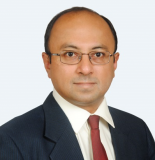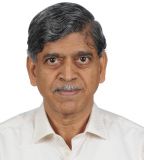How Doctor commissions and freebies work
The recent controversy surrounding Micro Labs — the Bengaluru-based generic drug manufacturer accused of giving away freebies worth at least ₹1,000 crore to promote its Dolo-650 tablets — only confirms it. (The company has, however, denied it does so.)
A friend who studies this spoke to several doctors across streams, and pharma companies and distributors, who say this is nothing new.
Speaking on condition of anonymity, they explained the finer points of the process of “gifting” in the pharma sector.
While cash is mostly avoided, freebies commonly come in the form of foreign trips, sponsorship for international conferences, study meets, gift cards for shopping, cars, and expensive gadgets.
What is interesting is that real estate deals often come into play, and doctors are known to have asked for construction materials like wood, steel, cement, and sand for the construction of their homes.
Who decides which doctor gets the freebies?
The sales divisions of pharmaceutical companies hold an annual meeting, usually in April and at an expensive getaway, where the performance of the year gone by is reviewed, and sales targets — including that for individual drugs — are set for the next fiscal.
The meeting includes the entire sales team, starting from the top (for instance, the president-sales) to the people who reach out to the doctors (medical representatives). Regional managers from the states (many of who oversee operations of the entire South Indian region for say South India doctors and area business managers (in charge of the districts) attend these meetings.
It is the medical representatives (MRs) who play an important role at these meetings; they suggest sales strategies at the grassroots, identify the doctors and hospitals to approach, and suggest the best ways to make these approaches.
How do the MRs arrive at their strategies?
MRs base their recommendations on the findings of a Retail Chemist Prescription Audit (RCP) of chemist shops in their respective sales areas. This “audit” is basically gathering information on the company’s own product sales as well as on the competition.
The audit also throws up a detailed list of the doctors in the area, specifying their stream of medicines. For instance, it tells which cardiologist or dermatologist in one neighbourhood is attached with which clinic or hospital, and the prescriptions for drugs the chemist receives from him or her.
“It is like how much business a particular doctor gives to the particular chemist,” a source explained. “The names of doctors are shortlisted for freebies based on this information.”
Are freebies given at random?
The world of medical sales is highly specialised and competitive, and MRs are given extensive training to keep pace with changing market dynamics and the competition. They have to have extensive product knowledge, as well as selling and communication skills.
The MRs initially use their sales pitch and communication skills to convince doctors to prescribe their products. It is usually when a doctor is unconvinced by an MR’s product, or is adamant on sticking to what they usually prescribe for an ailment, that “inducements” are tried on them.
“This basically means they are offered freebies in the forms of cash, gifts, travel packages, study trips, international conferences, etc.,” said the source.
And it is not only the doctors who are offered freebies; professors at medical colleges can also be the beneficiaries of such largesse.
These professors are like the influencers of social media,” the source said. “Any brand of drugs he or she promotes in class lectures is drilled into the minds of the students, who will graduate as young doctors.”
Are hospitals offered freebies?
Yes, hospitals in the private sector are often offered freebies, but not in terms of material gifts but as a profit-sharing option. According to a senior doctor from a renowned private hospital in Bengaluru, many hospitals have, in fact, “taken away the pens from the doctors”; in other words, attending doctors do not have the liberty to prescribe drugs of their choice, they have to go by what the hospital administration wants.
A prescribed drug has to be mentioned in the case history, which is entered into the computer. These drugs are mostly decided in advance by the hospital, which also frequently over-charges for the medicines by a margin of three times a drug’s sale price.
“This is of course done in consultation with the doctors, but the gifts that the doctor would have got now goes to the hospitals in terms of profit-sharing,” said the Bengaluru doctor.
Another person who is approached is the purchase control officer at the hospitals, as it is this person who places the order for various drugs. Once a purchase officer is roped in, the pharma company sets him a sales target. Freebies are given accordingly.
How do hospitals evade guidelines and overcharge?
The government has tried to plug profiteering in drugs through the Drugs Prices Control Order (DPCO), under the Essential Commodities Act.
The pharma companies have a unique way to circumvent this order, explains an MR with a prominent drug manufacturer.
“Say, the government brings in a rule stating that hospitals cannot charge more than Rs 3 for ‘Paracetamol 650’. The company will tinker with the formulation and introduce ‘Parcetamol 500’, which is not covered by the DPCO,” he said.
“If this too is covered by the order, the company will launch yet another product with combination drugs.”
Do doctors of a particular field get more freebies than others?
sources say doctors from no particular stream of medicine gets more freebies, with individual drug manufacturers and their distributors having unique arrangements with the doctors; freebies depend on this.
“It is a huge racket. I wouldn’t say all doctors and hospitals are involved in it. But a majority of them are,” said a senior doctor from a Hyderabad hospital.
“The market in the urban centres is huge. Doctors get paid not just directly from the companies but also from the local chemists. It is sort of an arrangement between them,” he said.
Another doctor added: “You may have noticed that often there are certain medical stores right next to the clinics and the medicines prescribed by a particular doctor is available only with that chemist. Dermatologists, oncologists and even cardiologists commonly have deals with such pharmacies; the market for derma and cosmetology is huge.” more















